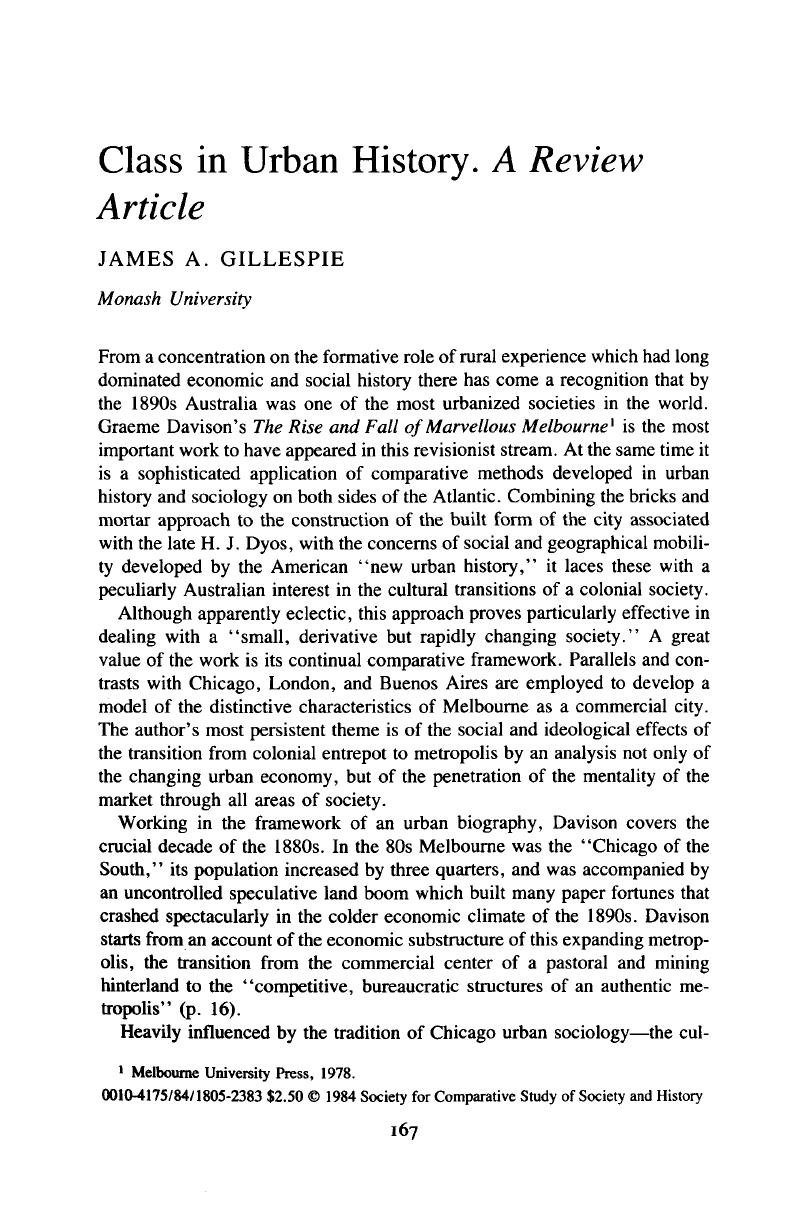No CrossRef data available.
Article contents
Class in Urban History. A Review Article
Published online by Cambridge University Press: 03 June 2009
Abstract

- Type
- Review Article
- Information
- Copyright
- Copyright Society for the Comparative Study of Society and History 1984
References
1 Melbourne University Press, 1978.
2 See Gray, R. Q., The Labour Aristocracy in Victorian Edinburgh (Oxford, 1978)Google Scholar and Crossick, G., An Artisan Elite in Victorian Society (London, 1978)Google Scholar. The most significant criticisms have come from Moorhouse, H. F., “The Marxist Theory of the Labour Aristocracy”, Social History, vol. 3, 1978, 61–82CrossRefGoogle Scholar; and Reid, A. “Politics and Economics in the formation of the British working class: A response to H. F. Moorhouse”, Social History, vol. 3, 1978, 347–361CrossRefGoogle Scholar. Gray has recently published a modified defence of the concept; Gray, R. Q., The Aristocracy of Labour in Nineteenth Century Britain, c. 1850–1914 (London, 1981).CrossRefGoogle Scholar
3 Wright, Thomas, The Great Unwashed (London, 1868).Google Scholar
4 New York: St. Martin's Press, 1979.
5 Among recent histories of British cities, Wohl, A., The Eternal Slum (London, 1977)Google Scholar, and the work of the late Dyos, H. J. are good examples of this tendency; see also “Urban History and Local History”, History Workshop 8, (Autumn) 1979, iv–vGoogle Scholar. On the other side of the Atlantic the study of social mobility has given work a similiarly ameliorist direction, see Henretta's, James critique, “The Study of Social Mobility: Ideological Assumptions and Conceptual Bias”, Labor History Spring, 1977.CrossRefGoogle Scholar


